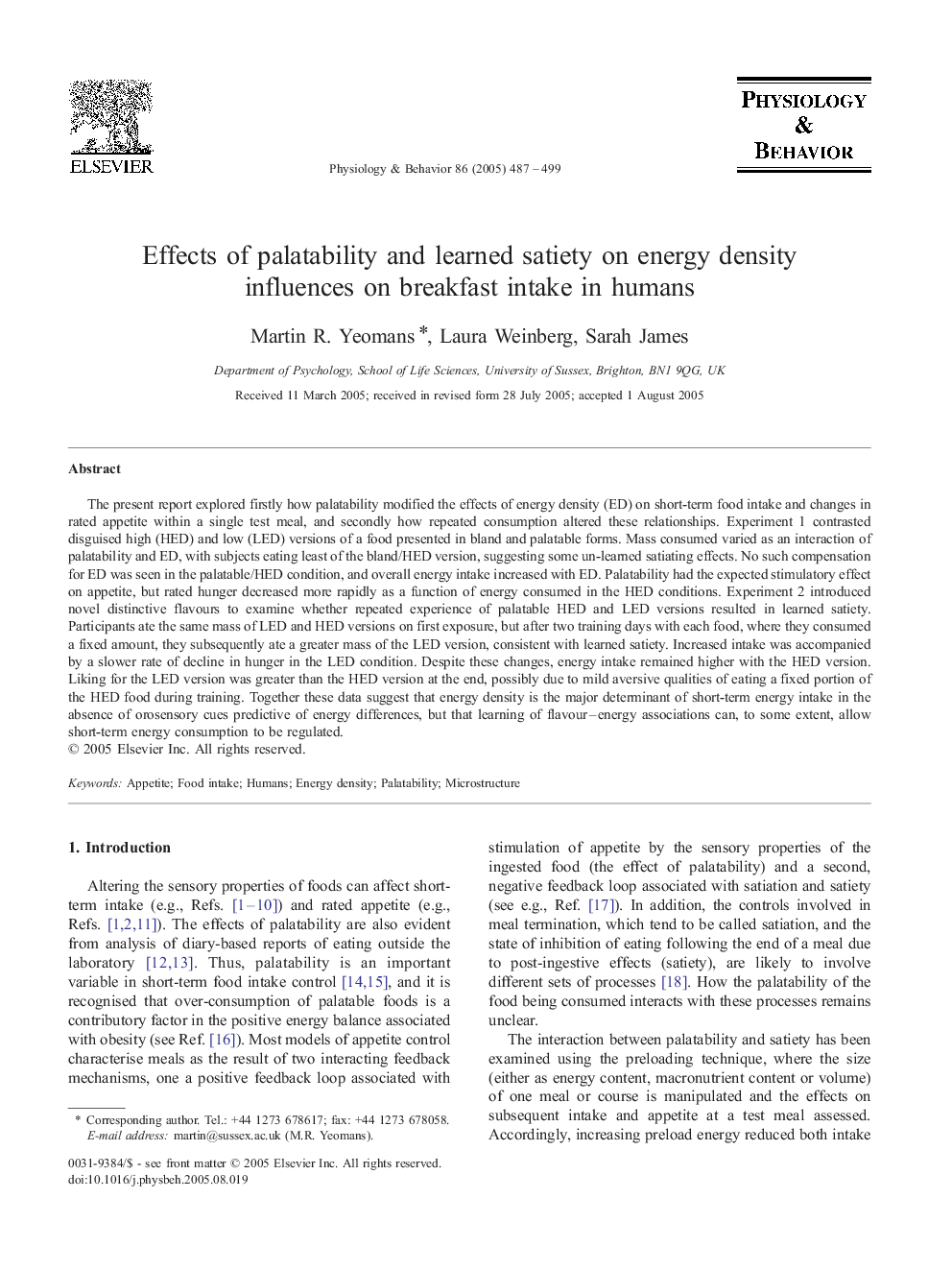| کد مقاله | کد نشریه | سال انتشار | مقاله انگلیسی | نسخه تمام متن |
|---|---|---|---|---|
| 9149541 | 1166421 | 2005 | 13 صفحه PDF | دانلود رایگان |
عنوان انگلیسی مقاله ISI
Effects of palatability and learned satiety on energy density influences on breakfast intake in humans
دانلود مقاله + سفارش ترجمه
دانلود مقاله ISI انگلیسی
رایگان برای ایرانیان
کلمات کلیدی
موضوعات مرتبط
علوم زیستی و بیوفناوری
بیوشیمی، ژنتیک و زیست شناسی مولکولی
فیزیولوژی
پیش نمایش صفحه اول مقاله

چکیده انگلیسی
The present report explored firstly how palatability modified the effects of energy density (ED) on short-term food intake and changes in rated appetite within a single test meal, and secondly how repeated consumption altered these relationships. Experiment 1 contrasted disguised high (HED) and low (LED) versions of a food presented in bland and palatable forms. Mass consumed varied as an interaction of palatability and ED, with subjects eating least of the bland/HED version, suggesting some un-learned satiating effects. No such compensation for ED was seen in the palatable/HED condition, and overall energy intake increased with ED. Palatability had the expected stimulatory effect on appetite, but rated hunger decreased more rapidly as a function of energy consumed in the HED conditions. Experiment 2 introduced novel distinctive flavours to examine whether repeated experience of palatable HED and LED versions resulted in learned satiety. Participants ate the same mass of LED and HED versions on first exposure, but after two training days with each food, where they consumed a fixed amount, they subsequently ate a greater mass of the LED version, consistent with learned satiety. Increased intake was accompanied by a slower rate of decline in hunger in the LED condition. Despite these changes, energy intake remained higher with the HED version. Liking for the LED version was greater than the HED version at the end, possibly due to mild aversive qualities of eating a fixed portion of the HED food during training. Together these data suggest that energy density is the major determinant of short-term energy intake in the absence of orosensory cues predictive of energy differences, but that learning of flavour-energy associations can, to some extent, allow short-term energy consumption to be regulated.
ناشر
Database: Elsevier - ScienceDirect (ساینس دایرکت)
Journal: Physiology & Behavior - Volume 86, Issue 4, 15 November 2005, Pages 487-499
Journal: Physiology & Behavior - Volume 86, Issue 4, 15 November 2005, Pages 487-499
نویسندگان
Martin R. Yeomans, Laura Weinberg, Sarah James,